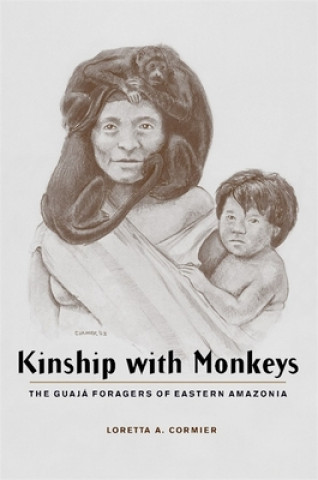
Doručení
Nákupní rádce





Nehodí se? Vůbec nevadí! U nás můžete do 30 dní vrátit
 Dárkový poukaz
V libovolné hodnotě
Dárkový poukaz
V libovolné hodnotě
S dárkovým poukazem nešlápnete vedle. Obdarovaný si za dárkový poukaz může vybrat cokoliv z naší nabídky.
Kinship with Monkeys
 Angličtina
Angličtina
 140 b
140 b
30 dní na vrácení zboží
Mohlo by vás také zajímat


Intrigued by a slide showing a woman breast-feeding a monkey, anthropologist Loretta A. Cormier spent fifteen months living among the Guaja, a foraging people in a remote area of Brazil. The result is this ethnographic study of the extraordinary relationship between the Guaja Indians and monkeys. While monkeys are a key food source for the Guaja, certain pet monkeys have a quasi-human status. Some infant monkeys are adopted and nurtured as human children while others are consumed in accordance with the "symbolic cannibalism" of their belief system. The apparent contradiction of this predator/protector relationship became the central theme of Cormier's research: How can monkeys be both eaten as food and nurtured as children? Her research reveals that monkeys play a vital role in Guaja society, ecology, economy, and religion. In Guaja animistic beliefs, all forms of plant and animal life -- especially monkeys -- have souls and are woven into a comprehensive kinship system. Therefore, all consumption can be considered a form of cannibalism. Cormier sets the stage for this enlightening study by examining the history of the Guaja and the ecological relationships between human and nonhuman primates in Amazonia. She also addresses the importance of monkeys in Guaja ecological adaptation as well as their role in the Guaja kinship system. Cormier then looks at animism and life classification among the Guaja and the role of pets, which provide a context for understanding "symbolic cannibalism" and how the Guaja relate to various forms of life in their natural and supernatural world. The book concludes with a discussion of the implications of ethnoprimatology beyond Amazonia, including Western perceptions of primates.
Informace o knize
 Angličtina
Angličtina
Kategorie




 Jak nakupovat
Jak nakupovat






















